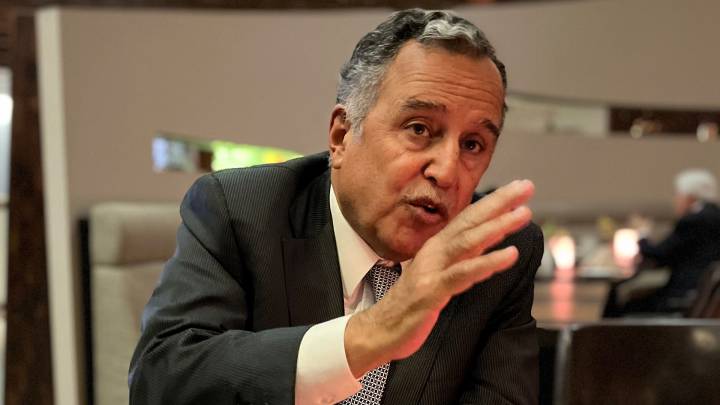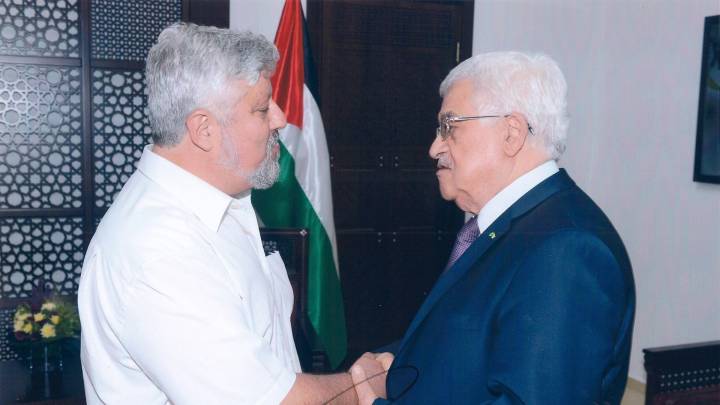Saudi Arabia wants to use the coronavirus pandemic to put the costly fiasco of the Yemen war behind it - and save face in the process. The Houthis, on the other hand, now feel their time has come.
What has happened?
On 26 March 2020, Yemen entered its sixth year of war. The situation remains pretty much unchanged since the conflict began in 2015. And despite promises to the contrary, none of the parties involved have taken significant steps towards actual peace. Today, 80% percent of the country remains dependent on humanitarian aid, and more Yemeni children die from hunger than from the violence associated with the conflict itself. Widespread famine conditions, rampant preventable diseases, water shortages, and an acute lack of hospitals and ventilators have culminated in Yemen becoming an epidemic within a pandemic. Despite the UN Secretary-General’s recent call for a global ceasefire amid the Covid-19 outbreak, the conflict’s belligerents have so far failed to capitalise on this opportunity. Promises have gone unkept and “peace-talks” announced by the Saudis two weeks ago have since collapsed.
Almost six years have elapsed, tens of billions of dollars spent, and thousands of dead lay dead, and yet the Saudi-led coalition’s sphere of influence in Yemen is almost exclusively restricted to the southern parts of the country. As the war has dragged on, the Saudis have reluctantly abandoned their original mandate of returning the internationally recognised Yemeni President Abd Rabbu Mansour Hadi to power and recapturing state institutions from the Houthis. The UAE, once a key member, has finally left the coalition after formally announcing their intent to do so in February 2019.
Despite no longer playing a military role in the conflict, their interests remain active on the ground, and continue to shape its dynamics, threatening to upend the tenuous regional balance facilitated by neutral Oman. In the north of the country, the Houthis have consolidated power, reorganised state structures and secured tribal alliances. Firmly embedded in northern Yemen’s socio-political landscape, the Houthis retain a firm grip over their vast territories. Whatever one may think of them, they have proven themselves a force to be reckoned with, one that is undoubtedly here to stay.
Why does it matter?
The Covid-19 crisis pushed the Saudis to seriously review their true interests in Yemen. Freeing themselves from the country, something they have wanted to do for a while, now appears like a humanitarian gesture rather than an admission of political and military defeat. Pulling out of Yemen during the Covid-19 outbreak, when Yemen is at its most vulnerable, makes Saudi Arabia look humane. Unburdened by the Yemen conflict, Saudi Arabia will be free to reinvest all of its substantial resources and efforts into forcibly modernising its economy as outlined in its economic framework known as Vision 2030.
The Houthis, in contrast, have continued to push for war, correctly assuming that victories on the battlefield will increase their leverage at the negotiating table, where they will perhaps finally achieve their much sought after formal recognition. They will, therefore, continue attempting to provoke the Hadi government by attacking their remaining strongholds in the city of Marib. Even when faced with a worldwide pandemic, the Houthis will not risk sacrificing their guaranteed political momentum for peace, not when they have come so far in their long asymmetric battle for power. In the absence of peace, ongoing military conflict is likely to hamper Yemen’s fight against Covid-19, jeopardising the health and safety of millions caught up in the violence.
The Covid-19 threatens Yemen in a myriad of lethal ways. Despite Yemen’s relatively youthful population, families are often multi-generational rather than nuclear, inhabiting small houses full of elderly and younger relatives. Yemenis also often gather socially in large groups to chew khat, a mild narcotic leaf, or pray at the mosque. Additionally, Covid-19 awareness-raising and social distancing campaigns, while necessary and helpful, are unlikely to reach at least half of the population, which lacks access to basic information.
Such a situation is compounded by the fact that, in the years since the war began, Yemen has witnessed the worst cholera outbreak in history, and occasional flare-ups of dengue fever and other infectious diseases. It is simply irrational to expect a country where people lack basic medical care, where people die every day from simple appendix and tonsil removal procedures, to successfully counter an epidemic which has killed tens of thousands in developed countries with highly developed health care systems. Currently, Yemen has no more than 50 ventilators for a population of 25 million. The war has already decimated the Yemen’s population, upon which post-conflict reconstruction depends. An outbreak of Covid-19 in Yemen, if it occurs, is likely to many thousands more.
What happens next?
In the future, Yemeni-Gulf relations are likely to mirror those with Syria. Bashar al-Assad, like the Houthis, was once the Gulf’s nemesis. In regional politics, recognition of legitimacy follows recognition of longevity. Once Gulf countries realised that Assad was not going anywhere, they were forced acknowledge him as legitimate and deal with him as such. Like Assad, the Houthis, must ultimately be recognised as a legitimate political entity for peace to prevail in Yemen.
Although it may take years, relations between the Gulf and those involved in the conflict in Yemen should start to soften. For Saudi Arabia, the ongoing war against the Houthis is economically, militarily, and reputationally unsustainable. Their recent, fruitless bombardment of the same empty targets in Sanaa they have been bombing for the past five years is testament to this fact. When the Saudis decide they can no longer afford their offensive in Yemen, they will simply leave. In the resulting vacuum, Yemenis will fight their own battles, and settle their own domestic differences. In the meantime, the war goes on. In the absence of real changes on the ground, it is the locals who will continue to suffer.
Raiman Al-Hamdani is currently a visiting fellow at the European Council on Foreign Relations (ECFR) where he specialises in the security and development in the Middle East and north Africa, with a particular focus on Yemen. Al-Hamdani also works as a research fellow at the Taiz-based Yemen Polling Center (YPC).




